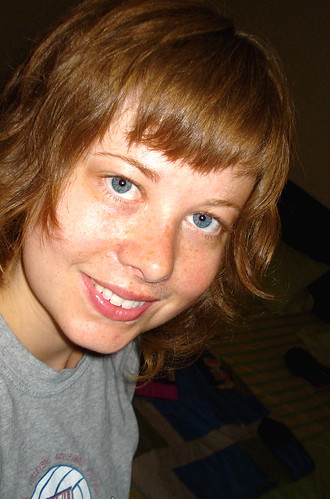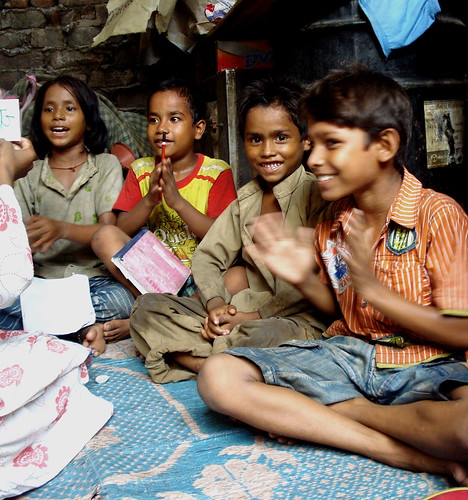“Who speaks for the people on the land from Asia to Africa to the Americas?”
– Vandana Shiva – Physicist, Environmental Activist and Ecofeminist based in New Delhi, India
I arrived in New Delhi and have spent the past 10 days adjusting to the climate, culture and communities in India’s capital. I have been overwhelmed with the kindness and generosity of an Indian family that took me in for my first few days of travel, have been moved by Indian art, eaten delicious food, developed a fascination with Bollywood and am also coping with record-breaking heat, language barriers, thick smog, congested, horn-honking traffic, astounding poverty and a whole array of digestive problems.
Yet, even while the ground in New Delhi seems to be ever shifting, I finally feel like I have found some footing. Thus, I am now sitting down to write the story of my host organization, Chintan, and the community of wastepickers that Chintan services. I will continually update this story as it unfurls, and as I further embed myself in Chintan’s grassroots work focused on environmental justice in one of the world’s fastest growing economies and most populated cities.
While I am at Chintan I will be playing multiple roles. In a ten week period, I will be developing a composting kit for residents of New Delhi, conducting primary research on compensation for methane capture conducted by New Delhi’s wastepickers and building technical capacity among Chintan staff around information dissemination through video, photography and blogging. Finally, I will be blogging myself, to bring the stories of wastepickers and urban poverty in India to a North American audience.
This blog represents a major challenge for me. As a privileged outsider from the west I feel ill equipped to relay the story of a community so far removed from my own. Indeed, a community enduring environmental injustice brought on by my own.
httpv://www.youtube.com/watch?v=gjbVlZUsm34
However, I care deeply about holding myself accountable to the wastepickers of New Delhi and Chintan in representing their story accurately and in a culturally appropriate manner. Thus, I welcome and indeed appreciate any critique of the representations that I portray in this blog. Please read my words, watch the videos that I post and analyze my photographs. I cannot help but bias these representations with my own cultural baggage. I want that bias to be laid bare in the comments and critiques that permeate the commentary on my posts. I also welcome an ongoing dialogue about the appropriate role, if any, of westerners in “developing” countries, particularly with respect to western representations of “the Other” through multi-media.
Having delineated my own ethical dilemmas, I will now begin the story of Chintan and wastepickers as I see it…
Chintan’s mission is to address multiple problems simultaneously: waste management, urban poverty, and climate change among others. As such, this organization works with and for India’s waste experts, the urban poor, who are responsible for the majority of waste management and recycling that happens in the country. For wastepickers, recyclables are a commodity that if segregated from waste, provides a meager livelihood. Yet, as a result of their recycling efforts, wastepickers provide a vital environmental service to a nation undergoing unprecedented urbanization and rapid industrialization. Wastepickers ensure recycling and reuse of many materials that would otherwise end up in Delhi’s bursting landfills.
Thus, Chintan works with wastepickers to increase capacity for their recycling. Furthermore, in recognition of this vital service, Chintan works to improve the working conditions, health and status of wastepickers and their families in New Delhi. Chintan has a number of campaigns and programs working to accomplish these tasks. For example, Chintan advocates for wastepickers at all levels of government, and conducts campaigns demanding that residents of New Delhi segregate their waste at its source to reduce wastepicker’s exposure to hazardous materials. Chintan also helps organize wastepickers into a variety of workers collectives. Finally, Chintan provides educational support for the children of wastepickers who often do not attend or complete state-run school programs.
Over the next two months I will fill in the details of these programs and gain insight into how Chintan’s advocacy work and programs play out on the ground. I look forward to the challenging weeks ahead.
http://www.ecoworld.com/features/2004/03/06/vandana-shiva-in-her-own-words/ Vandana Shiva – In Her Own Words by Paolo Scopacasa, March 6th, 2004
Posted By Jackie K. (India)
Posted Jul 3rd, 2009






3 Comments
malati gadgil
July 6, 2009
I have always loved Vandana Shiv’s work. I would love to see how you incorporate that into the work we do here at Chintan.